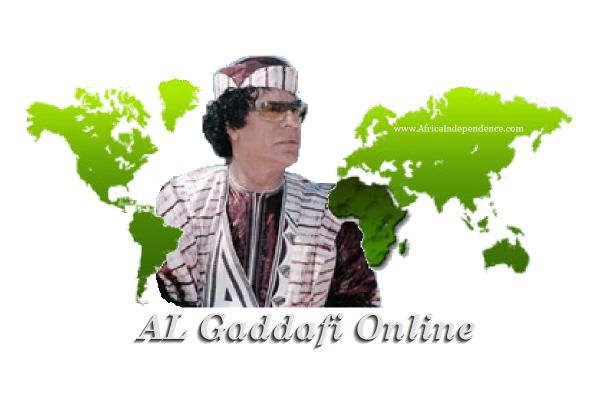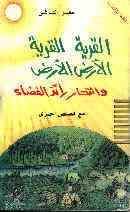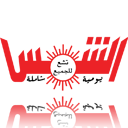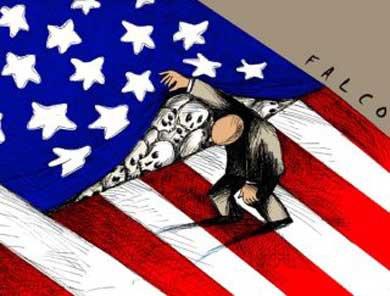Contents
CAMPAIGN AGAINST
LIBYA: Concept of International Terrorism
Terrorism was considered an
issue separate from political violence only in the early 60s. The
distinction has to be made not only between crime and violence and
between violence and terrorism, but also between terrorism and
armed struggle and revolution. The nature of the relationship
between the victim and the third party determines the nature of the
action: terrorism, violence, or crime.
Violence is the deliberate
direct harming of the victim. In other words, when the victim is
first and foremost the objective. The perpetrator of a crime, on
the other hand, deliberately seeks to harm his victim as a means of
revenge or for any other selfish purpose. Terrorism is the use of
violence to harm the victim in order to bring moral pressure to
bear on another party. It is usually a tactic used by a weak group
against a stronger hostile group to attain a political objective
that has been perceived to be impossible to achieve through other
means. Hence a terrorist is not usually qualified as a criminal.
The terrorist usually believes in the personal innocence of his
victim, and his only justification for harming him is his wish to
communicate a message to a third party.
Finally, a distinction is
made between terrorism and armed struggle. The United Nations has,
in its instruments, declarations and resolutions, emphasized this
distinction, legitimating the right to armed struggle in favor of
self-determination, the liberation of an occupied territory, or the
recovery of a usurped independence. However, the U.N. Charter
forbids the use of force in international relations, doing so in
various Articles of the Charter, in particular Article 1, paragraph
1. The Charter authorizes the use or threat of force only in two
specific cases:
- International security and
the need for military measures (Articles: 41 and 42) particularly
if the Security Council fails to counter the jeopardy posed to
international security.
- The right of self-defence
(Article 51). The right of individual or collective self-defence
under the aegis of the Security Council.
The U.N. Charter
did not define the acts that could jeopardise international peace.
However, GA resolution 375 of 1949 comprised a Declaration of the
Rights and Duties of States. Article 9 of this Declaration
stipulates that every State should refrain from the threat or use
of force in its regional policy, that every State should also
respect the territorial integrity, the security and independence of
any other State, and refrain from any act incompatible with
international law and the international order. Article 10 forbids
assistance to any State that contravenes the provisions of Article
9.
Regrettably, none of these
international instruments have been heeded.
The United States
provided Britain with assistance in its war against Argentina in
1982 and Britain assisted the United States in its bombing of Libya
in 1986. Despite the Israeli violations of International Law,
aggression against Lebanon, occupation of Palestine, parts of South
Lebanon and the Syrian Golan Heights, the flow of military and
economic assistance to "Israel" forthcoming from several States,
particularly America, shows a sharp increase.
Furthermore, the United
States has always countered the efforts and attempts made by the
U.N. General Assembly to define the concept of "International
Terrorism" and its context, to differentiate between State
terrorism and that of individuals or groups of individuals, and to
differentiate between international terrorism, and the right of
peoples and liberation movements to self-determination. At the
Special Committee on Terrorism, the United States insisted on
removing the issue of State terrorism and the definition of the
concept of terrorism from the scope of the committee. It did so
because it had often resorted to State terrorism. A
good example was the highjacking of the Egyptian civilian plane in
international air space in l985 in which the plane was compel to
land in one of the NATO bases in Sicily,
Italy.
The concept of "State
Terrorism" implies a state or a group acting on its behalf or
employed by it to terrorize other parties outside its national
boundaries. The other parties could be a State, a group, or
individuals. The State embarking on such action makes use of either
economic, political, media, or military means, or a combination of
these.
There are various
forms of State terrorism:
- To provide
assistance to colonial expansionist racism of fascist
regimes;
- To provide
assistance to armed groups rebelling against national
governments;
- To counter
national liberation movements struggling to secure the right of
self-determination for their peoples;
- To impose a given
policy on a national government against the will of its
people;
The U.N. General
Assembly resolutions express a manifest condemnation of the forms
listed above and others like it, yet the above four points clearly
indicate that in its conflict with the Jamahiriya, the United
States has practised all forms of "State terrorism."
America is still training a group of CIA agents to
carry out acts of aggression against
Libya.
The collapse of the balanced
world order could be achieved today by terrorist means, thus posing
a greater danger than ever before. The facility with which
bacteriological and chemical arms can be produced, is a further
encouragement to the hopeless and the downtrodden to make use of
them to terrorize. Terrorism can be deterred only through justice
and fairness The obstinacy manifested by American and British
circles in their dealings with Libya, and their refusal to be just
and fair, could provoke any nation and goad it into taking
irresponsible and frenzied actions.
Libya, on the other hand, has
always acted in a diplomatic manner, with great maturity, calm and
self-confidence. It moved at Arab and international levels
stressing its readiness to seek arbitration from any neutral
international organization and to co-operate to achieve justice.
Libya has at every occasion proclaimed its innocence in these two
terrorist acts. The Libyan judiciary officially investigated the
two international cases involving Libyan nationals. The Leader of
the Libyan Revolution proposed several times to submit the two
cases to the United Nations or to the International Court of
Justice or to any other joint organ. The Libyan judiciary announced
its readiness to cooperate directly with the British and American
as well as French judiciary. The leader of the Revolution Colonel
Moammar Qaddafi called for the convening of a session of the U.N.
General Assembly to consider the issues of terrorism and
compensations to the victims of international terrorism - past and
current - calling those responsible to account for such acts,
whether individuals, states or organizations, and calling for the
enactment of international legislation to determine the definition
of terrorism, and to forbid and penalize it.
Despite the manifest
flexibility of Libya in endeavoring to avert this imperialist
aggressive scheme against it, it never disregarded its sovereignty
or political principles. It categorically refused to surrender its
accused nationals for trial in Britain, the United States, or
France because such an act was incompatible with its laws as well
as with the norms of international law. It upheld its revolutionary
and freedom-loving message, and stressed that Western nations had
long been guilty of terrorism, including old and neo-colonialism,
such as hijacking planes and killing innocent civilians in Libya
and Palestine. All Arab and non-Arab countries, which had been
exposed to Western colonialism and plots, called on Western and
international justice to apply the principle of justice and
retribution to each and every one.
Such stands of Libya and the
way it handled this new campaign had positive and important
results. All Arab countries condemned the Western threatening
approach and stood against any military aggression against Libya
whatever its justification. The Council of the league of Arab
States adopted resolutions which angered and disturbed the Western
nations because they did not expect such a strong collective stand,
believing that the Gulf crisis they had planned had severed forever
the unity of Arab peoples and countries. A number of Arab
governments including those which had excellent relations with
Western nations expressed their solidarity with Libya and their
opposition to any political, economic, or military sanctions,
before and unless Libya was indicted by a neutral international
legal authority. Other Arab countries announced their firm
determination to side with Libya in case of a military
confrontation. This strong and unanimous support for Libya was
reiterated at the Islamic Summit held in Dakar (December, 1991),
and all Muslim Leaders condemned this threatening and aggressive
approach.
This open and diplomatic
handling by Libya of the Western slander campaign disclosed the
blatant aggressive nature of the
American-British-French scheme. Their refusal, in
particular, to consider the acceptance by Libya of abiding by a
neutral legal ruling, and persisting in their arrogance to stand by
the alleged results of their investigations shows exactly who is
the aggressor.











